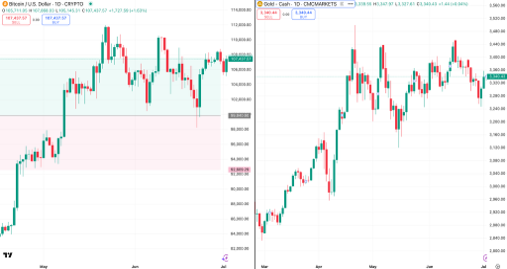Amid heightened political tensions in Washington, the Bank for International Settlements (BIS) sounded the alarm this weekend. The aim was to highlight the crucial importance of central bank independence at a time when the US Federal Reserve is under unprecedented political pressure.
The BIS's annual report warns of a growing trend toward political interference, particularly in the United States, where Donald Trump has stepped up his public attacks on Jerome Powell, the Fed Chairman. The US president criticizes Jerome Powell for “slowing US growth with overly restrictive monetary policy.”
Trump has even publicly stated his intention to replace Powell. This stance is worrying: markets fear a weakened Fed that could be manipulated and therefore less credible.
The BIS emphasizes that central banks (such as the Fed) must remain independent, as they have a delicate task to perform. The fact is that the Fed must balance between supporting economic growth through low interest rates as President Trump desires or preserving monetary value, so as not to cause the growing public debt to explode.
As a direct consequence of this political and monetary instability, the US dollar (DXY) fell to its lowest level in more than three years to around 97.2 points. This represents a decline of more than 10% since January — its worst performance since 2022. This weakness in the greenback can be explained by:
- The prospect of a policy shift by the Fed driven by political pressure.
- Anticipation of disorderly rate cuts.
- Investors' loss of confidence in US institutional stability.
An HSBC analyst thinks that “There is a Trump risk premium built into the dollar today.” Such an unstable climate pushes investors to alternative assets, like gold and Bitcoin. The price of Bitcoin has rebounded to over $120,000, buoyed by an influx into crypto ETFs ($1.7 billion in June) and the price of gold reaches almost $3,400, boosted by currency volatility.

The credibility of the Federal Reserve — one of the historic global pillars of stability — is being weakened by the institutional clash between Trump and Powell. This situation threatens the confidence that has long surrounded the dollar's dominance.
Beyond cryptocurrencies and gold, there are other "neutral" currencies like the Swiss franc, Japanese yen, and the digital Chinese yuan. These are now acting as safe havens from a dollar that is looking less and less stable. A development that was unthinkable just a few years ago.







